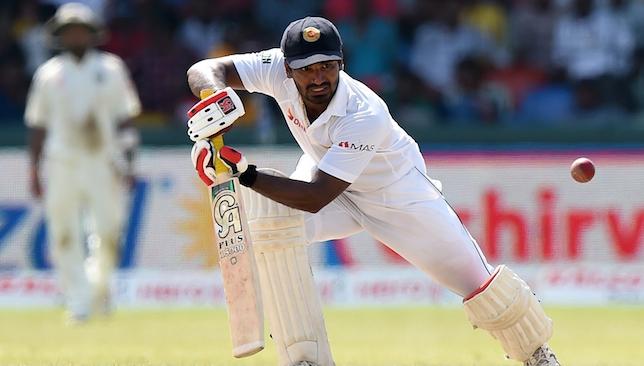
Sri Lankan authorities claim Kusal Perera may have paid a price for blowing the whistle on a matchfixing offer during the home series against West Indies.
– New Zealand: Kiwis consider second spin option
– Cricket Xtra: MCL proves a by-product of the IPL era
– #360debate: Time Test cricket introduced relegation?
The promising wicketkeeper was tested positive for a banned substance and was pulled out of the ongoing Test and limited-overs series in New Zealand earlier this month.
Sports minister Dayasiri Jayasekara claims Perera’s food or his urine sample may have been tampered to ‘teach him a lesson’. Jayasekara said a man linked to a bookmaker had offered Perera and star bowler Rangana Herath tens of thousands of dollars to engineer a Sri Lankan batting collapse at a Test in Galle in October, which the hosts went on to win emphatically.
“They wanted Sri Lanka to get out early for a very low score. This is a match Sri Lanka was expected to win, but if they lost, the bookie would have made a lot of money,” Jayasekara said. The minister said some 10 million rupees (around $70,000) had been offered to the players to lose the match.
Sri Lankan cricketers Kusal Perera & Rangana Herath were approached by bookie to engineer SL’s batting collapse in Galle Test v West Indies.
— Faizan Lakhani (@faizanlakhani) December 18, 2015
“After Kusal turned down the offer, the man approached Herath who also rejected the offer and alerted the authorities,” he said. “It is possible that something was slipped into his food or his urine sample was tampered with to get this result,” Jayasekara said of Perera, whose urine sample was taken for testing on October 12, two days before the start of the Galle Test.
“We are doing our best to defend him,” the minister added. Police has mounted a search for the suspect who was said to have approached the two players.
“We have started a police inquiry in addition to an anti-corruption probe by Sri Lanka Cricket,” Jayasekara added, in reference to the national cricket board.
Sri Lanka beat the tourists by an innings and six runs after veteran left-arm spinner Herath took 10 wickets in the match. The West Indies, who have never won a Test match in Sri Lanka and went on to lose the two-match series 2-0, were rank outsiders for the showdown in Galle where the home team have a particularly strong record.
Ashley de Silva, the chief executive of Sri Lanka Cricket, said the board could not discuss the case in line with International Cricket Council (ICC) anti-corruption regulations. “Because of the anticorruption regulations, we cannot say anything,” de Silva said.
However a source in the board confirmed that the organisation was conducting its own investigation into the claims. “The two players brought this to our notice,” said the source, speaking on condition of anonymity.
Although betting is illegal in most of the cricket-mad Indian subcontinent, there is no shortage of backstreet bookmakers – many of whom have links to the underworld.
Ronnie Flanagan, who heads the ICC’s anti-corrruption unit, recently acknowledged match fixing would never be eradicated even though a string of international stars have been exposed as in the pay of bookmakers.
Although no Sri Lankan player has ever been convicted of corruption, several former stars have made allegations of either match fixing or spot-fixing, when players deliberately bowl or field badly to give away a set number of runs.
Former skipper Hashan Tillakaratne dropped a bombshell in May 2011 when he claimed he had been an eye-witness to match-fixing by fellow players since 1992. Tillakaratne never disclosed any names.
Two Sri Lankan umpires were banned in 2013 after an Indian television station claimed they were willing to make favourable decisions during matches for cash.